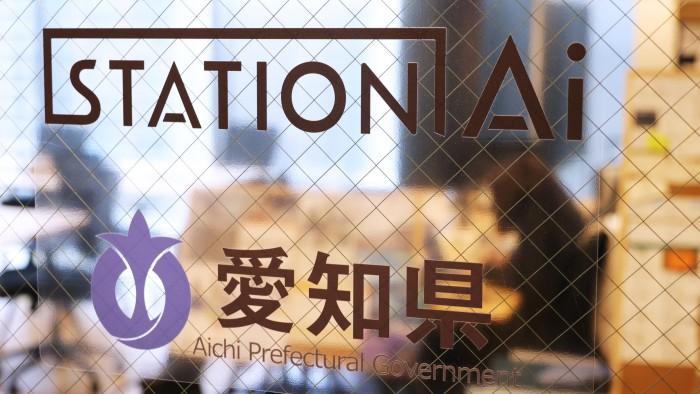
Unlock the Editor’s Digest for free
Roula Khalaf, Editor of the FT, selects her favourite stories in this weekly newsletter.
Start-ups developing future forms of transport such as space planes, drones and flying cars are emerging in central Japan’s Aichi prefecture, home to Toyota Motor and its suppliers, driven by a sense of urgency to foster industrial momentum amid challenges from the arrival of electric vehicles.
PD Aerospace, a start-up that hopes to develop private space travel, said it had benefited from choosing Aichi as its headquarters.
“Auto businesses share a sense of crisis,” said chief executive Shuji Ogawa, that EVs have put engine parts makers in a plight. “Toyota, as well as smaller companies, seems to have expectations for aerospace as a cutting-edge arena where its development of engines and decarbonised fuels can be utilised.”
His company depends on local factories, most of which are Toyota partners, to process the parts necessary for prototyping the space planes. It has also been in talks with Toyota and big automotive parts manufacturers such as Denso and Aishin, which are part of the Toyota Group, to explore areas of collaboration.

This article is from Nikkei Asia, a global publication with a uniquely Asian perspective on politics, the economy, business and international affairs. Our own correspondents and outside commentators from around the world share their views on Asia, while our Asia300 section provides in-depth coverage of 300 of the biggest and fastest-growing listed companies from 11 economies outside Japan.
Subscribe | Group subscriptions
Moreover, Toyota Tsusho, the trading arm of the Toyota Group, is one of the start-up’s investors. “Toyota affiliates have a strong presence in the community, and their actions can have an impact. Having part of their capital gives us more credibility when it comes to fundraising or recruiting,” said Ogawa.
The prefecture and its neighbours have been a national hub for aircraft manufacturing since before the second world war and now hope to re-establish the industry as an industrial pillar.
At the forefront of such ambitions was the development of small jetliners through a public-private initiative led by Mitsubishi Heavy Industries. But the Mitsubishi SpaceJet project, which started in 2008, was derailed last year because of sluggish progress and mounting losses.
Aichi is now looking towards start-ups seeking to develop future forms of transport as the next drivers of the region’s industrial growth.

The local government hopes to build on that momentum as it prepares to open a start-up incubation centre, Station Ai, in the prefectural capital of Nagoya in October. The facility, built and operated by SoftBank, plans to accommodate about 1,000 start-ups.
In 2023, the prefectural government launched a co-operative effort that involved four mobility start-ups, the Toyota-affiliated company Jtekt and Nagoya Railroad. It aims to accelerate “air mobility” such as drones and flying cars and advance their autonomous operation.
The effort was proposed by the start-up Prodrone, which was founded in 2015 and is now developing load-carrying drones dubbed “flying pick-up trucks.” Chief executive Shunsuke Toya says Aichi is a “juicy” place to have a headquarters.
“We can find all the skilful engineers we need. We also employ a few who used to work for Mitsubishi Heavy,” said Toya. Local companies have “outstanding, world-class” skills in processing the key aircraft materials of carbon fibre material and aluminium, and “being close to them means getting tasks done quickly”, he said.
Toya echoed the points made by PD Aerospace’s Ogawa, citing the region’s “cohesive culture” as a unique strength. “From the prefectural government to local universities, banks and start-ups like us, there is a mutual support system that has helped us in fundraising and other stages,” he said.
Aichi officials working on start-up support said the engagement of big companies will be the key. To achieve that, the new incubation centre plans to host not just start-ups but also established companies at home and abroad.
One question the prefecture needs to address is how to enhance financial support, according to Ogawa. “Effective fundraising and capital policies are vital to start-ups, but here it’s difficult to raise money or find people to consult on strategy, compared to Tokyo,” he said.
“Aichi’s entrepreneurship has mostly been weak but will probably grow from here with Station Ai and other initiatives,” said Toya. “The region is capable of solid manufacturing, so solid start-ups should emerge as well.”
A version of this article was first published by Nikkei Asia on February 7. ©2024 Nikkei Inc. All rights reserved.